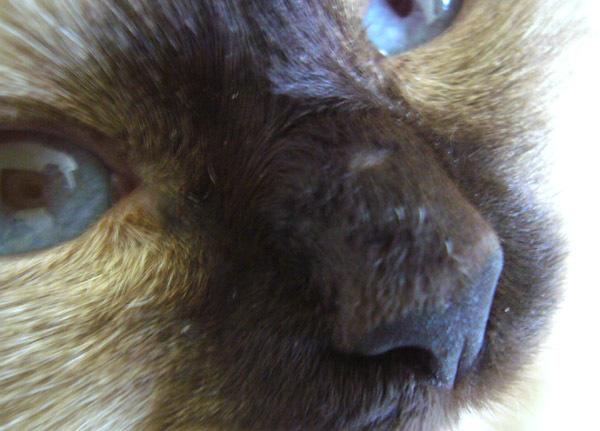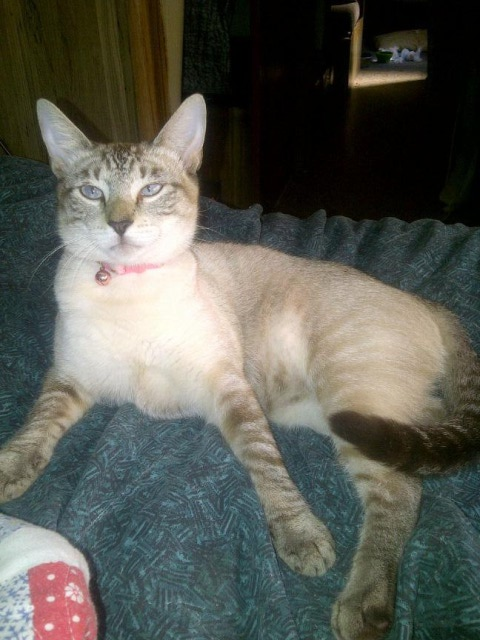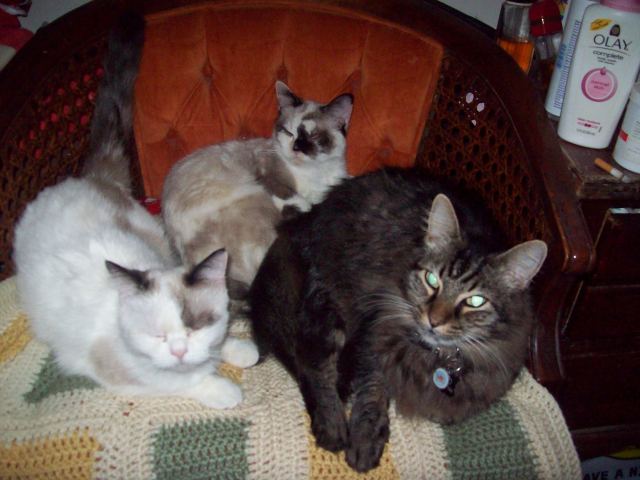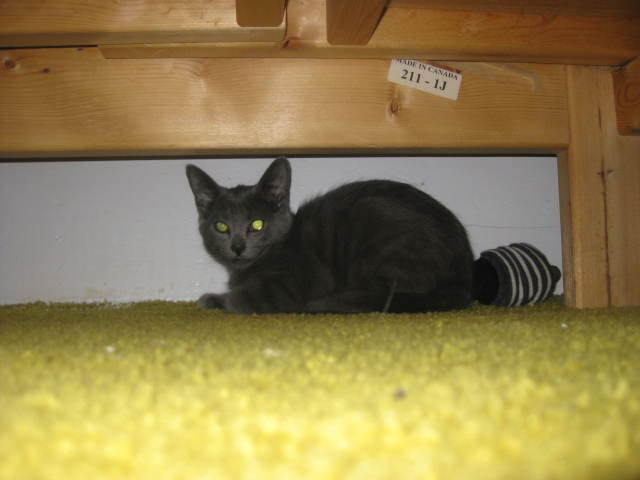QuestionWe recently adopted a stray ~6 week old kitten who had been rolled by a car (not hit by the tires, but sent flying on his face). He has leaky diarrhea. He has been to see our vet 4 times in the past 2 weeks, at $40-$80 a pop. They have done fecal testing and given us Albon as well as Diarsanyl and told us to try Immodium, even. We are at the end of our financial rope and disgusted to boot. He's a very, very sweet kitty who eats well and acts totally normal, except that every few minutes he poos on the floor. I hate to keep him locked up in the bathroom 24/7, but I have a two year old and 3 other cats (who are all fine). To make matters worse, I'm pregnant again, and I'm getting nervous that this kitty has some kind of horrible parasite that is going to cause my unborn child harm. WHAT SHOULD WE DO? We can't afford to take him to the vet every 4 days for tests, as much as I like him. We feed him moistened Purina kitten food. Any advice would be greatly appreciated.
Thanks,
Lisa
AnswerHi Lisa. I know how frustrating this is, as I'm going through it right now myself. Nothing like drips of diarrhea all over your bed every morning.
There are many medications besides Albon your vet could prescribe. He should NOT need to see the vet just to try a new prescription. If your vet is insisting on a visit each time, I would find another vet.
Albon is preferred to treat coccidia, a common protozoan parasite in kittens, as well as some bacterial infections. But Flagyl (metronidazole) is favored for treating giardia, another protozoan infection that's slightly less common than coccidia. And there's Panacur (fenbendazole), which will help treat both of these infections as well as roundworms, hookworms, whipworms, and a rather rare strain of coccidia called cryptosporidium, which can be resistant to the other antibiotics. It is possible he's got toxoplasmosis, which I'm sure you've heard of. That's usually treated with Antirobe (clindamycin hydrochloride). Please don't get alarmed here. Toxoplasmosis won't become infective to you or your unborn child until left in the environment for 24-48 hours. Promptly cleaning the litter box or any accidents will eliminate the chances of it spreading. You can use gloves while cleaning, or better yet, have someone else do the cleaning up after him if you're nervous. There IS a blood test the vet could run that may indicate active infection with toxoplasmosis if it would give you peace of mind.
Some kitties end up with such an inflamed colon that it becomes a vicious cycle, even once the root cause is treated. The inflammation itself causes the diarrhea. And as much as we hate to do it, sometimes the only thing that helps is a steroid, like prednisolone or dexamethasone, to reduce the inflammation and allow the diarrhea to correct itself. Most times a treatment of a couple weeks works, though some cats need to stay on a low dose of steroids for life.
I might try a different kitten food, as well. If it contains corn or wheat (even flour), this could certainly be the cause of his diarrhea. These ingredients don't have a place in a cat's natural diet, and they are hard for cats to digest. A food with chicken and rice is usually easier on the stomach. In fact, for now, I would feed the kitten boiled chicken breast mixed with a little boiled white rice if he'll eat it as his sole diet, to see if that helps relax his stomach. You can feed it for up to a couple weeks until his stomach settles before switching back to kitten food.

 Bald spot on my cats nose
Question
bald spot
Hello Jessica,
Today I notic
Bald spot on my cats nose
Question
bald spot
Hello Jessica,
Today I notic
 Siamese Cat Question
Question
Merlin
Hello, My cat snowshoe Siamese c
Siamese Cat Question
Question
Merlin
Hello, My cat snowshoe Siamese c
 Litter Box Behaviour
Question
All Kitties
Hello!
Im writing to you fo
Litter Box Behaviour
Question
All Kitties
Hello!
Im writing to you fo
 Shaking? Or is it from her purr?
Question
Prada Under our bed
We just adopted a Himalaya
Shaking? Or is it from her purr?
Question
Prada Under our bed
We just adopted a Himalaya
 my kitty Valentine
QuestionQUESTION: my kitten is 3 month old I only had h
my kitty Valentine
QuestionQUESTION: my kitten is 3 month old I only had h